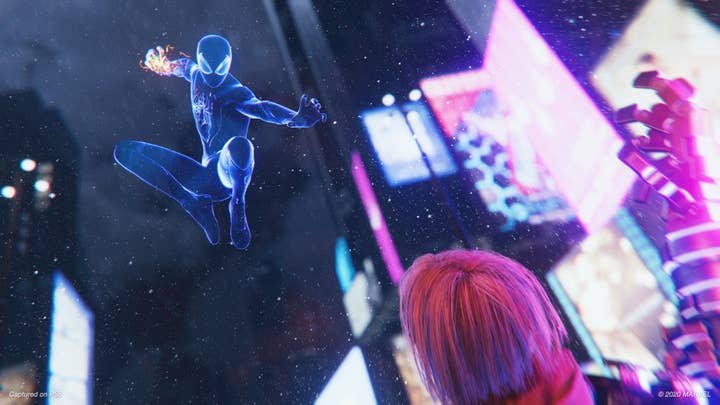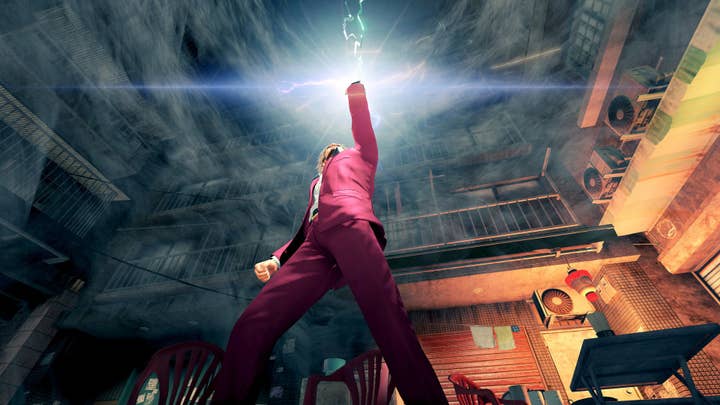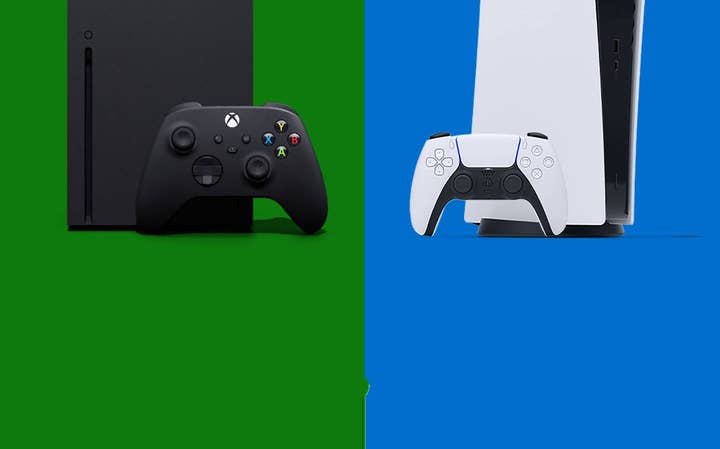The last great console leap? | Opinion
Microsoft and Sony have different strategies, but they're both launching consoles that feel less like a “clean break” with the past generation
The new console generation has taken the leap from the hypothetical to the real. After more than a year of gradual reveals, alternating between coy silence and vast information dumps as the respective platform holders engaged in a corporate dance of the seven veils with consumers, all is revealed.
The Xbox Series X|S and PS5 are both right now in the hands of a pretty wide selection of journalists, influencers, streamers and the like, and next week they'll start landing into the living rooms of consumers who managed to wade through the (fairly awful) pre-order process. All the veils are off; there's no more guess work, and the only thing that's really left unknown about this launch is how consumers are going to respond to the new systems.
Perhaps that gradual flow of information has somewhat taken the surprise out this generation, but it's worth stepping back to look at the new systems in their entirety, on the eve of their launches, and pausing to note just how remarkable this hardware transition actually is. It's not remarkable so much for the hardware itself, which largely treads a well-defined upgrade path with only a few little surprises here and there, but rather for the nature of the actual transition -- which is going to feel, from a consumer perspective, quite unlike any previous switchover between generations.
The actual transition is going to feel quite unlike any previous switchover between generations
The reason for that is because both of these devices are going to be pretty much completely backwards compatible with the existing generation; not just in terms of "you can put your old discs in so there's no need to keep the old box under the TV", which has happened a handful of times before, but in the much more meaningful sense that you'll switch them on, enter your account details, and all your old digital games and so on will be right there. Many of them -- especially on Microsoft's consoles -- will even provide performance and fidelity boosts over your old console. This switchover has crept up on us to some extent, I think, and we've accepted it as normal without really thinking about what it means for the consumer experience.
Microsoft has obviously done by far the most work here. Admittedly, its architecture choices in previous generations make it much easier, but the technical accomplishment of Series X|S backwards compatibility is still hugely impressive and the amount of work that it's done to make this all work as well as it does is remarkable. Sony's alternative only goes back one generation, sure, but the very fact of its existence and comprehensive nature is still something that makes this generational transition stand out.

Backwards compatibility hasn't always been a slam dunk feature, despite how much focus it often grabbed around the time of new hardware launches in the past. PS4 wasn't backwards compatible with anything -- leading to a pretty solid market for upgraded editions of popular PS3 titles -- and it didn't hurt it a bit. PS2 backwards compatibility meant so little to PS3 that the feature was dropped from consoles after a short amount of time. So what's changed in the past few years to make backwards compatibility absolutely de rigeur for all of these new systems?
This universal shift towards backwards compatibility was enabled by the realities of the hardware, for sure; it's just straight-up easier to make this work now, to the point where not enabling it at least to some degree would require a conscious choice. However, it's also a function of a shift in how the platform holders view their consoles and even how they define the idea of a "platform."
There will be a smooth continuity between PS4 and PS5 that belies Sony's commitment to generations
Microsoft has been incredibly overt about this, positioning the Xbox as a platform and brand that extends across multiple generations of consoles -- with several devices being live and relevant in the market at any given time, allowing consumers to upgrade at their own pace to some extent -- and also goes beyond consoles, extending onto PCs and other devices. We've tended, not unfairly, to place this strategy in contrast with Sony's more traditional embrace of the idea of hardware generations, but this ignores the fact that the transition from PS4 to PS5 is also going to be a very different shift from those that came before.
There will be a smooth continuity between PS4 and PS5 in a way that belies Sony's commitment to generations to some extent. Consumers will see their digital PS4 library available on their PS5 when they start using it, and some of those games are going to play at higher framerates and in better fidelity on the new hardware, while other games are going to be automatically upgraded to the PS5 edition at no extra cost. There's no clean break here, no sense of "everything here is new," but rather a flow from one generation to the next. It may not go quite as far as blurring the whole idea of generations, as Microsoft does, but Sony is still a pretty long way down the track towards that concept.

In a sense, there's no other way this could work, because apart from hardware and strategy, the other thing that's changed dramatically in the course of the last generation is the nature of the game experiences that players are actually engaging with. Service-based games are naturally going to carry over from one generation to the next; they aren't going to be left behind on old platforms. The reality is that a ton of players are going to swap out their old dusty consoles for shiny new ones, and promptly pick up exactly where they left off in Fortnite, Apex Legends, Destiny, FFXIV or whatever their poison may be.
The nature of what games actually are in 2020 militates for Microsoft's approach to the platform
It's not that there won't be new experiences on the new consoles -- and some real differentiation will eventually emerge between Microsoft and Sony in terms of their policies on first-party generational exclusives -- but the nature of what games actually are in 2020 militates for Microsoft's approach to the platform. Sony's embrace of backwards compatibility and continuity between platforms is merely an acknowledgement of that reality.
In fact, while Microsoft is the side most closely associated with this kind of platform continuity across generations, it's Sony that actually stands to benefit the most in the short-term, at least. The company faces an admittedly high-quality problem in terms of how to best handle the huge PS4 customer base as its attention shifts over to PS5, and the sense that the new consoles are really just a shiny upgrade rather than an entirely new platform is -- while certainly not desirable for them in the medium- to long-term -- probably quite helpful to them in the supply-constrained early months of the new system.
It means that while PS5 may be desirable to them, PS4 owners aren't going to spend the back end of the year feeling left behind by Sony, since their PS5-owning friends are mostly going to be playing mostly exactly the same games, with only a trickle of first-party titles acting to differentiate the platforms. PS5 owners, meanwhile, benefit from the PS4's huge library from the outset. Microsoft doesn't have quite the same problem, simply because Xbox One didn't sell terribly well, but it still enjoys the same advantage of a solid back catalogue -- hugely bolstered by the value proposition of Game Pass -- for Xbox Series owners on day one.
Further down the line, there'll likely be a much more significant divergence between the companies. Microsoft's strategy seems to imply that it'll gradually upgrade its Xbox family and never do a gigantic generational leap again, while Sony remains committed to the latter course of action and would rather like to continue selling PS5s for a solid six or seven years, thank you very much -- but for now, they've both landed on an almost identical launch strategy.
It's a strategy that emphasises continuity over change and drives home the message -- however much Sony denies it -- that just as game platforms themselves have become more loosely defined in recent years, console generations are also destined to be heavily blurred around the edges from now on.

